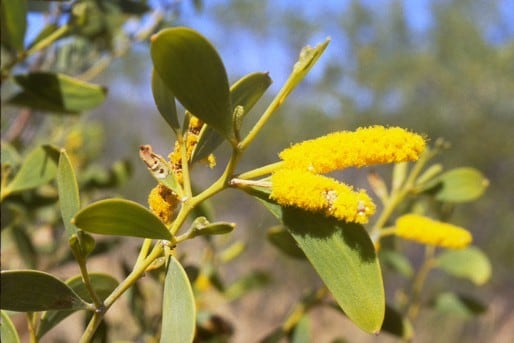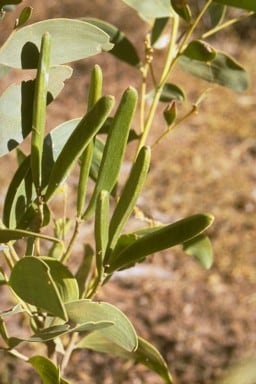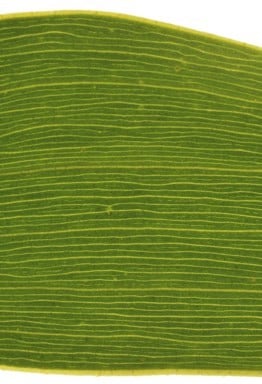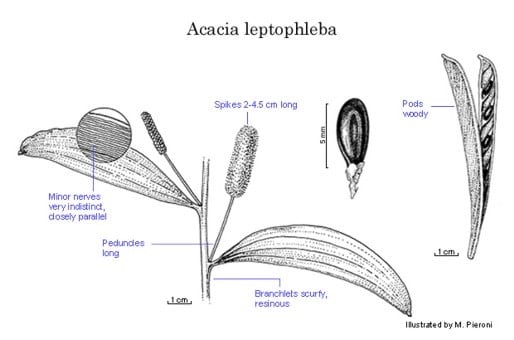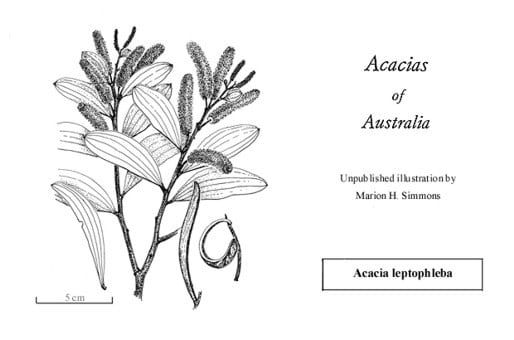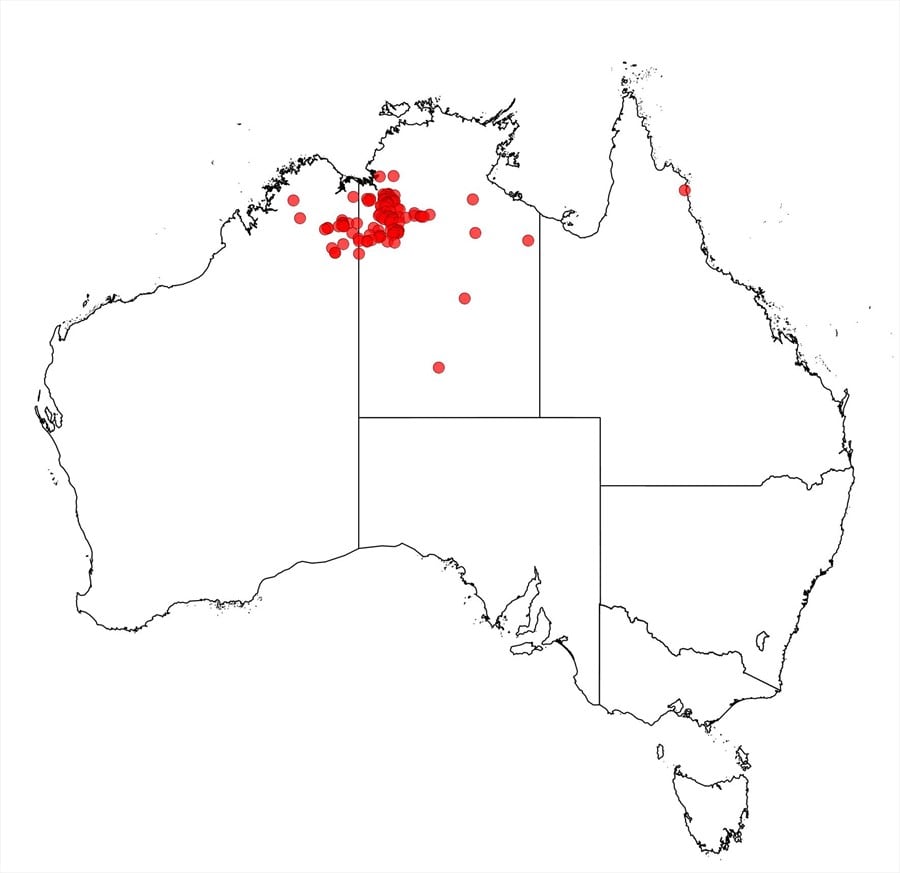Acacia leptophleba F.Muell. ex Benth.
WATTLE
Acacias of Australia
Family
Fabaceae
Distribution
Occurs in northern Australia, mainly in the Ord and Bow R. districts and at Sturt Ck, W.A., from the Victoria R. eastwards to Montejinni and Wave Hill, N.T.
Description
Shrub 0.9–2.5 m high, to 8 m wide, scurfy, papillose, resinous. Bark ±smooth or slightly rough, grey. Branchlets slightly angular or flattened towards apices, light to dark brown. Phyllodes narrowly elliptic to very narrowly elliptic-linear or narrowly oblanceolate, oblique, flat, 3.5–11 cm long, 7–20 mm wide, with resin-crenulated margins, coriaceous, rigid, with 3 longitudinal subprominent nerves indistinct towards apex (the lower nerve confluent with margin near base); minor nerves inconspicuous, possibly with obscure minor anastomoses confused by fine longitudinal wrinkling when dry; gland 1, basal, 0.5–1.6 mm above pulvinus. Spikes 2–4.5 cm long, golden. Flowers 5-merous; calyx 0.8–1.3 mm long, dissected to 1/2–4/5, sometimes papillose; corolla 1.4–2 mm long, dissected to 1/4–2/3, glabrous; ovary ±villous. Pods erect, linear-oblanceolate, straight-sided, 7–11.5 cm long, 6–10 mm wide, woody, striate, glabrous, opening ±elastically from apex; margins prominent. Seeds oblique, oblong-elliptic, 6–8 mm long, black or dark brown; areole open, elongated, depressed; funicle-aril narrowly conical.
Phenology
Flowers Apr.–Sept.
Habitat
Grows in sandy, often alluvial soils or in rocky skeletal soils, on calcareous sandstone, dolomite or granite, on hillsides in Eucalyptus-Heteropogon woodland or on the plains in savannah grassland with spinifex.
Specimens
W.A.: Bedford Downs, F.Lullfitz 6199 (CANB, K, NSW); Turkey Ck, 160 km N of Halls Creek, M.D.Tindale 10146, P.Munns & R.Turley (BRI, CANB, DNA, MEL, NSW, PERTH). N.T.: Limbunya, C.R.Dunlop 3517 (DNA, K, NSW); 54 km E of Top Springs, G.P.Guymer 648 (NE, NSW); Pinkerton Ra., I.V.Newman 621 (NSW).
Notes
There is some variation in the nervation of the phyllodes. In several specimens, much smaller, fallen pods have been collected near the plants but they may be from other species.
FOA Reference
Data derived from Flora of Australia Volumes 11A (2001), 11B (2001) and 12 (1998), products of ABRS, ©Commonwealth of Australia
Author
Minor edits by J.Rogers
Dr M.D.Tindale and Dr P.G.Kodela with the assistance of M.Bedward, S.J.Davies, C.Herscovitch, D.A.Keith and/or D.A.Morrison
This identification key and fact sheets are available as a mobile application:
URL: https://apps.lucidcentral.org/wattle/
© Copyright 2018. All rights reserved.
